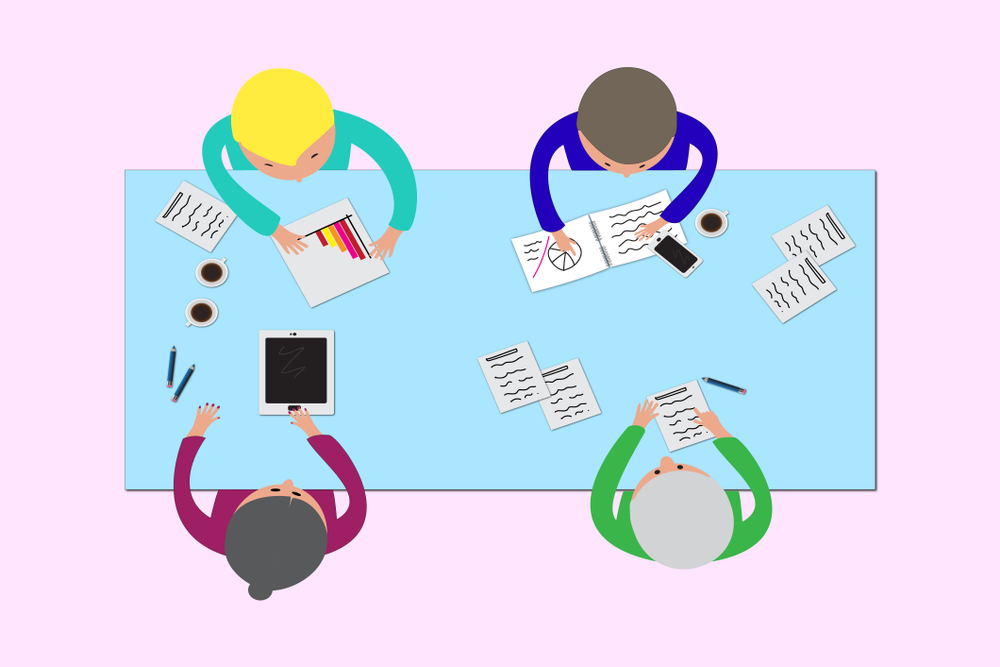Any time I call my former colleague and close friend — an editorial executive at a magazine — she nearly always picks up and says, “I’m on my way to another meeting. Stressed. Call you later.” In her words, she’s “meeting-ed out.” Meetings eat up her entire day, so much so that she has to do the work she loves (and was hired for!) — writing and editing — deep into the evening. Like 47 percent of the 3,200 employees Salary.com once surveyed, she thinks the vast majority of her meetings are a waste of time.
“Long, back-to-back meetings are a huge waste of human capital,” Kathleen Nadeau, Ph.D., a clinical psychologist in Maryland and author of Learning to Plan and Be Organized, tells Thrive. “Meetings should have a clear and short agenda with people weighing in via email in advance so that everyone has had time to think about others’ ideas and suggestions beforehand.”
That’s ideal, but all too often meetings play out like a sloppy time-suck. Employees spend an average of one day a week in meetings (that’s 50 days a year!) and 51 percent say the meetings are useless to them, according to a survey of 3,000 workers worldwide conducted by tech company Barco.
Not only is it frustrating when meetings feel useless, but the fact that they take employees away from their actual work intensifies stress levels and decreases productivity. This draining cycle requires a major rethink. But for now, to help you better handle your meeting malaise, try doing this:
Take short pauses between meetings throughout the day to just be
We’ve all experienced pure panic while looking at large chunks of time blocked off on our calendars for meetings, realizing we’ll have little time to devote to deep work. But, anxiety is bred in our belief that we have no control over our day, Melanie Greenberg, Ph.D., a California-based clinical psychologist and author of The Stress-Proof Brain: Master Your Emotional Response to Stress Using Mindfulness and Neuroplasticity, told Thrive. One way to avoid getting overwhelmed by your workload is to schedule short breaks between meetings to decompress and enjoy a free-thinking moment — and perhaps some deep centering breaths — to yourself. Doing so will also help bring your attention back to the moment so you stay present, which will help you maximize your meetings and stave off stress.
Approach meetings as a learning opportunity
Maybe you’re in a meeting that feels unnecessary — “I’m not adding nor receiving anything of value here,” you might think — but there are always opportunities in disguise. In meetings, you learn about what and how your co-workers think, which can come in handy in your future exchanges with them. Even if your presence feels inessential, it’s an opportunity to learn what other members of your team are working on. Having a more comprehensive view of your company’s purpose, especially if it’s one that gels with your values, can positively bear on your own work.
Encourage more efficient meetings
With compassionate directness, a core value here at Thrive, ask your manager what meetings you can opt out of for the sake of productivity, and propose reformatting some meetings to improve their effectiveness. For instance, you could suggest holding at least one device-free meeting a day, which boosts engagement and shaves off time. Or encourage Jeff Bezos’s strategy of organizing your meetings around a well-crafted memo. Ahead of a big meeting, the individual spearheading it can create a detailed agenda to keep the meeting on track and fruitful. Bezos also keeps his meetings small with his “2 Pizza Rule,” which limits the number of attendees to the most essential participants (no more people than can eat two pizzas), which he believes saves time, eliminates confusion and maintains focus.
Follow us here and subscribe here for all the latest news on how you can keep Thriving.
Stay up to date or catch-up on all our podcasts with Arianna Huffington here.


